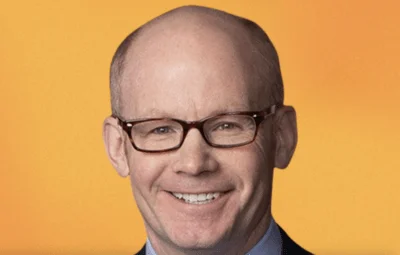Scott Reeder
Scott Reeder
Nothing is more annoying in public policy than people who complain, but don’t offer solutions.
The U.S. Senate effectively has 50 Republicans and 50 Democrats. Vice President Kamala Harris can cast a tie-breaking vote giving the Democrats an ever so slight edge.
So, what complaint do we hear expressed continually on social media? That the Senate doesn’t equally represent the American people.
That’s certainly true. But, then again, it never was supposed to.
Half of the nation's people have 18 senators representing them. On the other hand, there are 52 senators from the 26 smallest states, where just 18% of Americans live.
The individuals who drafted the Constitution feared big states would dominate small states. So, they gave states equal representation in the Senate and based representation in the House on population.
They also added a provision to the Constitution, that says the clause giving each state two senators can never be amended. So, most constitutional scholars concede, it’s an arrangement we are stuck with.
Instead of griping about it, we need to ask: Why after 233 years is it an issue now?
The short answer is our political parties have failed us. Diversity of thought has evaporated from both the Republican and Democratic parties.
Ideological litmus tests have become more important than legislative effectiveness among party leaders.
Don’t believe me? Look at how many times in recent weeks Sen. Joe Manchin, D-West Virginia, has been called a traitor to his party. Or, for that matter, how many times has Mitt Romney has been called a RINO -- Republican in Name Only.
Once upon a time, the world’s greatest deliberative body was full of people like Romney and Manchin – individuals whose beliefs didn’t always fit neatly into an ideological box.
There once were liberal Republican senators such as Charles Percy and conservative Democrats like Alan Dixon. Both men served the Land of Lincoln ably in Washington, D.C. And both would be oddities in today’s upper chamber.
South Dakota, a so-called “red state,” for years elected a liberal Democrat, Sen. Tom Daschle. And New York, what most folks now call a “blue state” elected Al D'Amato, a conservative Republican.
Voters were willing to look past party labels and even positions on issues to elect those they just considered quality people. Today, that happens less and less. Social media has not only made voters more partisan but the parties themselves less ideologically diverse. Both parties have far fewer moderates holding elected office.
“As much as Democrats talk about the need for diversity, there is very little tolerance for ideological diversity in the party,” said Robin Johnson, a political science instructor at Monmouth College and a consultant for Democratic campaigns.
If you think the Republicans are any better, look no further than what happened to U.S. Rep. Liz Cheney of Wyoming. She was booted from leadership when she dared to dissent from a spurious narrative about a “rigged election.”
Democrats complain that Republicans do better in rural states, which gives them an unfair advantage in the Senate. Nonsense. What they should be asking is why they aren’t doing better in those smaller states they once won.
Years ago, I remember how college students from elite universities on both coasts came to work on an Illinois congressional campaign. They went to a Democratic Party event at the Illinois State Fair, stood at the gate and ridiculed working-class Democrats walking by in overalls, trucker hats and work boots.
It is the sort of elitism that has driven rural working-class voters into the Republican column.
The same could be said for Republicans in urban areas. Time and time again, I’ve seen wealthy men opine on what ails inner-city neighborhoods. They do plenty of talking but not much listening.
We have a deadlocked Senate because some leaders in both parties have stopped trying to serve significant portions of the American people.
The problem isn’t how the Senate has been set up for the past 230 years: it’s political elites unwilling to listen to potential constituents whom they disagree with.
And until they start listening nothing is going to get better.
– Scott Reeder is a veteran statehouse journalist. He works as a freelance reporter in the Springfield area. Scottreeder1965@gmail.com





 Alerts Sign-up
Alerts Sign-up